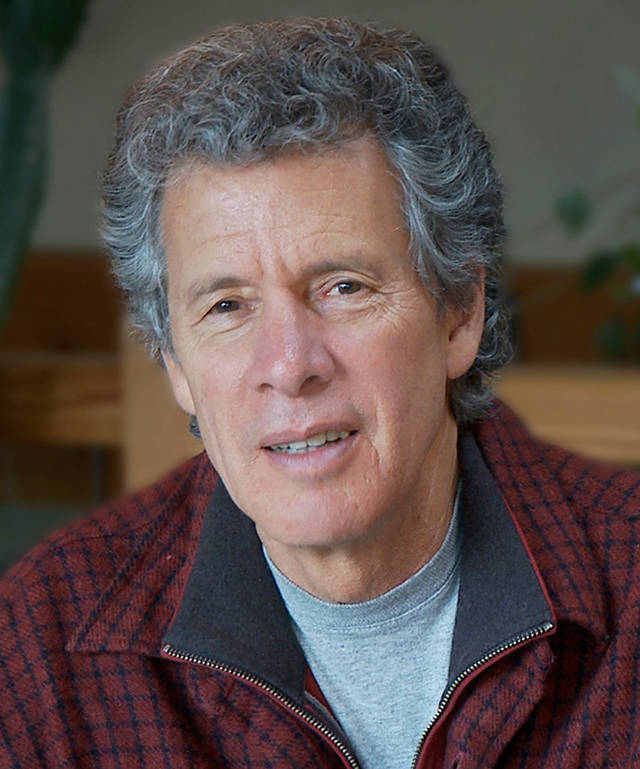Islander Phil Borges has always been interested in telling stories. From a student interviewing people on the streets in San Francisco’s Haight-Ashbury district to a photographer and filmmaker documenting indigenous cultures and striving to create an understanding of the challenges they face, Borges’ career has taken him all over the world.
Something he was continually struck with was how differently mental-emotional issues are diagnosed and treated in the West, versus in the developing world. Though he doesn’t see this story as finished, he and his team have completed a documentary, “Crazywise,” on the subject. It will be shown around the globe, including in Borges’ backyard at the upcoming Seattle International Film Festival.
Through his work as a human rights photographer, Borges has spent the past quarter century traveling to remote areas, learning along the way about people who have turned their psychological crises into a positive, transformative experiences, becoming seers, healers and shamans.
He witnessed how indigenous cultures — in South America, Africa, Indonesia and Tibet, to name a few — often identify “psychotic” symptoms as an indicator of shamanic potential, whereas in the West, people who see things that aren’t there or hear voices are diagnosed with a disease, and can end up ostracized from society.
“Fear, isolation and disempowerment are the enemies of mental health,” Borges said.
The psychiatric and pharmaceutical industries have been built around the idea of “chemical imbalance,” he said, and can ignore the social, psychological and biological factors that can not only contribute to psychosis, but also help people recover.
Back in the U.S., while working on a short film about the healing power of meditation, he started following two young Americans diagnosed with mental illness. One was Adam Gentry, who told Borges about the terrible side effects from medications he had taken for a psychotic break.
In indigenous cultures, people who experience these mental-emotional crises were treated very differently.
“These healers and seers I saw in the developing world were given such a different message: You’re unique. You have this special sensitivity. Yeah, it’s difficult at times, but you can learn to manage it, and we have someone that’s going to help you, somebody that’s been through it themselves,” Borges said. “And once you go through this, you’re going to be valuable to us… They’re given support, purpose and meaning.”
He had interviewed about 35 of these healers, and then began talking to mental health professionals and psychiatric survivors who see mental health crises as potential growth experiences, not diseases.
“Out of those interviews came this film,” he said. “I learned so much about what’s going on in the mental health world… It was a real education.”
The documentary “adds a voice to the growing conversation that believes a psychological crisis can be an opportunity for growth and potentially transformational, not a disease with no cure,” according to its website, www.crazywisefilm.com.
The U.S. is experiencing a mental health crisis, he said, with not only the amount of people on psychopharmaceuticals and prescription medications increasing, but also the number of suicides and people going on Social Security for mental disabilities.
Though he said the film is not anti-medication, it explores a growing movement of people who demand alternative treatments that focus on recovery, nurturing social connections and finding meaning.
Borges mentioned the Open Dialogue approach taken to psychoses such as schizophrenia in Finland. Instead of taking a person who has experienced a break or crisis to the hospital or a ward, clinicians gather their support network of friends and family, ask the person what happened to them and listen to what they say.
“Crazywise doesn’t aim to over-romanticize indigenous wisdom, or completely condemn Western treatment. Not enery indigenous person who has a crisis becomes a shaman. And many individuals benefit from Western medications,” according to the film’s website. “However, indigenous peoples’ acceptance of non-ordinary states of consciousness, along with rituals and metaphors that form deep connections to nature, to each other, and to ancestors, is something we can learn from.”
Borges said he and his filmmaking team hope to kickstart a discussion on these issues and different approaches to them.
“Crazywise” will be screened at 1 p.m. on May 21 at Majestic Bay Cinemas and 7 p.m. on May 22 at Pacific Place Cinemas. There will be a Q and A panel with the directors following each screening.



